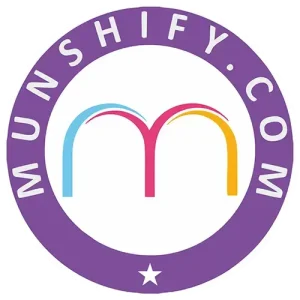Companies constantly seek smarter ways to improve efficiency, reduce operational costs, and manage their workforce effectively. When it comes to managing human resource functions, the choice often boils down to investing in HRMS Software or hiring additional staff. While both strategies have their merits, many organizations find that HRMS Software offers a more sustainable and impactful return on investment in the long run.
What Is HRMS Software and Why Is It Important?
HRMS Software short for Human Resource Management System Software is a comprehensive platform that automates and integrates core HR processes such as recruitment, payroll, time tracking, employee data management, benefits administration, and performance appraisals. This software helps HR departments function smoothly by reducing manual intervention, increasing accuracy, and providing actionable insights.
Make managing your team simple and fast by trying HRMS Software today!
Traditionally, HR departments relied heavily on paper-based systems or basic spreadsheets, which are prone to human error and inefficiency. By contrast, HRMS Software centralizes data in one secure system accessible anytime, which facilitates faster decision-making and better compliance with labor laws.
Comparing Costs: HRMS Software vs. Hiring More Staff
When considering costs, the upfront and ongoing expenses of both options should be evaluated carefully. Hiring additional HR staff involves salaries, benefits, recruitment costs, training expenses, and workspace needs. These expenses recur every month and grow as the team expands.
Meanwhile, investing in HRMS typically involves a one-time implementation fee or subscription costs based on the number of users or employees. Over time, the software’s ability to automate repetitive tasks reduces the workload for HR professionals, thereby lowering the need for additional hires.
Moreover, since software can scale easily with business growth, costs remain more predictable and manageable, unlike fluctuating personnel expenses.
How HRMS Software Enhances Productivity
By automating time-consuming and repetitive tasks, HRMS Software allows HR professionals to concentrate on more strategic initiatives such as talent management, employee engagement, and organizational development. Tasks like leave requests, attendance tracking, payroll calculation, and compliance reporting are completed automatically, reducing processing time significantly.
Additionally, the software provides self-service portals for employees to update their information, apply for leaves, or access payslips. This reduces back-and-forth communication and administrative bottlenecks, leading to overall improved organizational productivity.
Data Accuracy and Risk Mitigation
Maintaining accurate employee records and staying compliant with ever-changing labor regulations are critical responsibilities of HR departments. Mistakes in payroll or failure to comply with statutory requirements can result in penalties or legal disputes.
HRMS minimizes these risks by automating calculations, keeping comprehensive audit trails, and generating compliance reports effortlessly. Human error is substantially reduced when data entry and document processing are automated, ensuring that critical HR functions adhere strictly to legal standards.
On the contrary, hiring more staff without technology support increases the risk of inconsistencies and delays, as manual processes are more prone to errors.
Leran More: HRMS Mobile Apps: Why Mobile-First HR Management is the Future
Scalability and Flexibility
A significant advantage of HRMS Software is its scalability. As companies grow, HR processes become more complex, and manual management becomes unsustainable. Adding more staff might seem like a quick fix, but it comes with increased overhead and management complexity.
With software, additional employees can be added easily to the system, and workflows can be customized to suit evolving business needs. Features like cloud-based access mean that HR operations can be managed remotely and securely, offering greater flexibility.
The Impact on Employee Experience
An often-overlooked benefit of HRMS Software is its positive impact on employee experience. Employees gain more control over their personal data, benefits, and career development through intuitive self-service portals. This transparency fosters trust and engagement, which are essential for retention and workplace satisfaction.
Moreover, streamlined HR processes lead to faster issue resolution and better communication between staff and HR, creating a more positive work environment overall.
Conclusion: Making the Smarter Investment
While the decision between hiring more staff or adopting HRMS depends on specific business contexts, the advantages of software automation are increasingly clear. The efficiency, cost-effectiveness, accuracy, and scalability provided by HRMS make it the smarter investment for businesses aiming to optimize their human resources operations.
In an era where digital transformation is reshaping workplace dynamics, relying on technology to enhance HR processes is no longer optional but essential. Thus, companies that embrace HRMS Software position themselves better for sustainable growth and competitive advantage.
FAQs
1.What are the key features of HRMS Software?
Key features include payroll automation, attendance and leave management, recruitment modules, employee self-service portals, performance tracking, and compliance reporting.
2. How quickly can HRMS Software be implemented?
Implementation time varies based on the system’s complexity and company size, typically ranging from a few weeks to a few months.
3. Can HRMS Software integrate with other business systems?
Yes, most modern HRMS solutions can integrate seamlessly with accounting, ERP, and payroll systems.
4. Does HRMS Software help in compliance with labor laws?
Absolutely. It automates recordkeeping, generates audit reports, and keeps updated with local regulations to ensure compliance.
5. Is HRMS Software suitable for industries with unique HR needs?
Many HRMS platforms offer customizable features to accommodate industry-specific requirements such as shift scheduling, union rules, or certification tracking.
Do you want to make HR easier? Visit Munshify.com and try our HRMS Software today!



